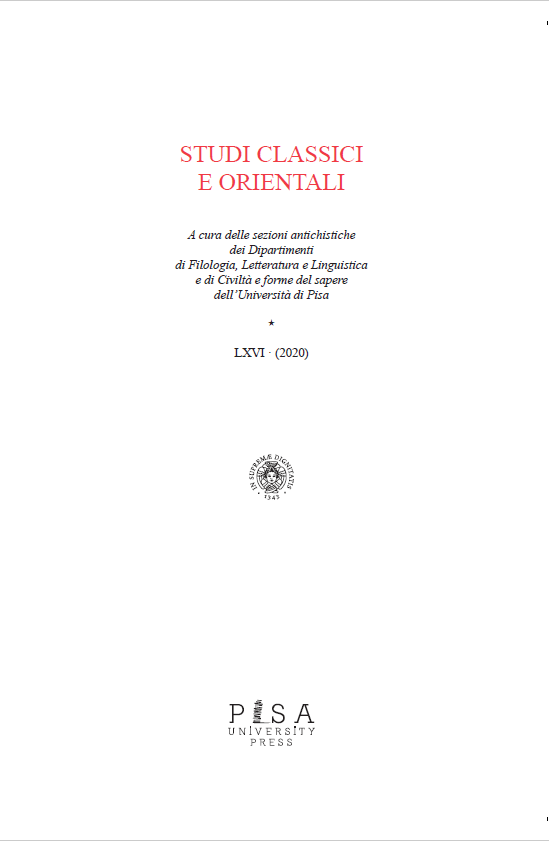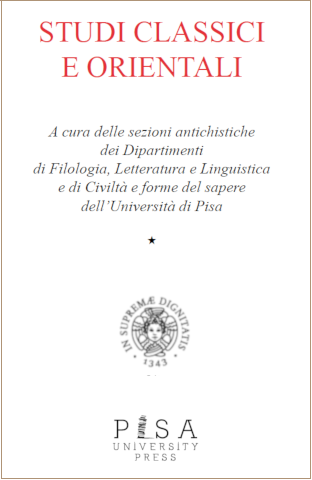Mορμολύκειον: il mostro e la maschera nel Fedone
Parole chiave:
Aristophanes, Phaedo, childhood, μορμολύκειονAbstract
In this paper, I shall discuss the origin of the well-known simile employed by Plato in Phaedo, 77e8: ὥσπερ τὰ μορμολύκεια. Since the term occurs for the first time in Aristophanes, the comparison in Phaedo underlies a link to the literary genre of comedy and, through comedy, to the genre of Aesopic fable. I shall prove this link through the analysis of the occurrences of Μορμώ and μορμολυκεῖον in Aristophanes. Aristophanic comedy also displays the telling of Aesopic tales, a literary form that Socrates employs in the first part of the Phaedo. Plato, when employing the comparison ὥσπερ τὰ μορμολύκεια closes the part of Phaedo where comedy was recalled in order to introduce the themes the literary form of dialogue deals with. The occurrence of μορμολυκεῖον in the Aesopic corpus (fab. 27 Haus.), which will be further analyzed, seems to confirm this hypothesis, rather than refuting it.



